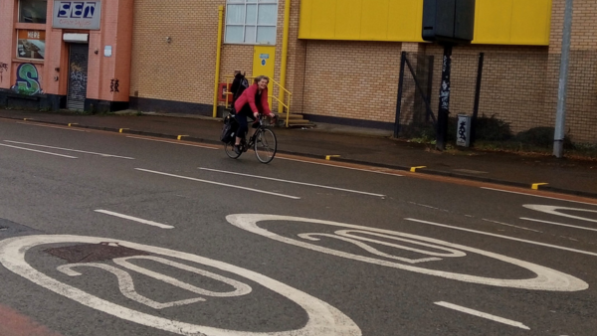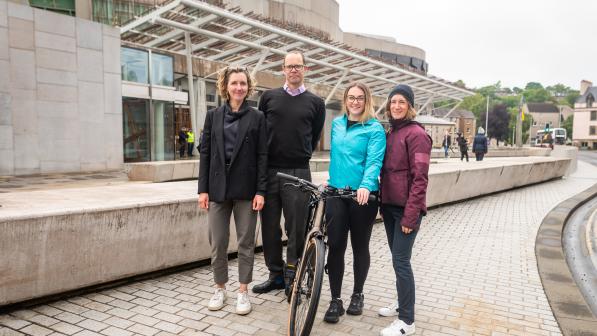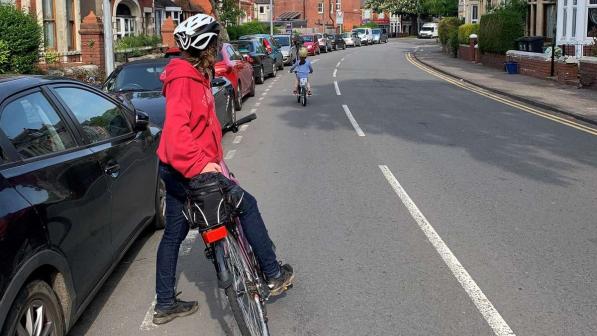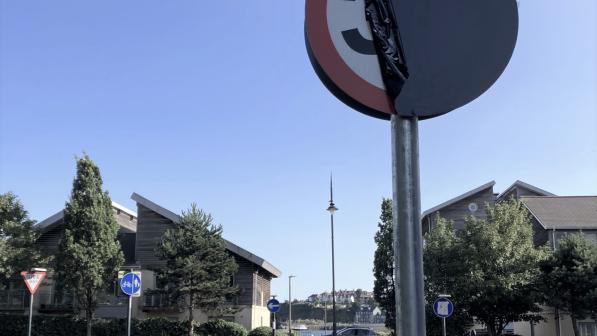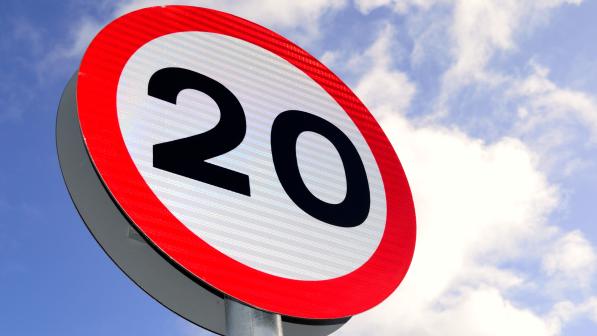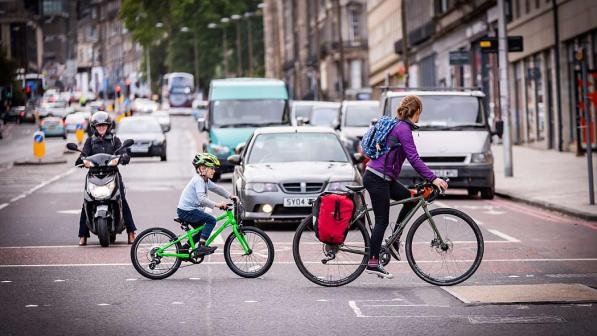Welsh 20mph default speed limit welcomed by Cycling UK

- The Senedd has voted in favour of a default 20mph speed limit on restricted roads, typically residential and built-up areas with high pedestrian activity
- The introduction of the new limit will transform road safety for more vulnerable road user groups, as evidence clearly shows reducing speed limits is one of the simplest and most effective ways to reduce road casualties
Cycling UK commends the Welsh Government for its introduction of a default 20mph speed limit on residential roads and busy pedestrian streets in Wales, which the Senedd voted in favour of last night (Tuesday 12 July), and hopes that it will set a precedent which will be matched across the rest of the UK.
Along with other campaign groups, Cycling UK has been calling for 20mph to be the standard speed limit for the majority of streets in built-up areas. Reducing speed limits is shown to effectively reduce road casualties, and it is one of the simplest ways to make our roads safer as speed is a significant cause of collisions.
This is a huge leap forward for Wales – the lower speed limit will help create more liveable neighbourhoods and town centres
Gwenda Owen, Cycling UK’s engagement officer in Wales
Cycling UK’s engagement officer in Wales, Gwenda Owen, comments:
“This is a huge leap forward for Wales – the lower speed limit will help create more liveable neighbourhoods and town centres, building community cohesion by encouraging more cycling and walking. Studies also show this can benefit local businesses, as people feel safer and more confident exploring their local area on foot or two wheels.”
Not only are collisions more likely the higher the speed, but the risk of serious injury or death to pedestrians and cyclists increases disproportionately as speeds increase. A Task Force Group set up in 2019 by then Minister for Economy and Transport, Lee Waters, found ‘overwhelming evidence’ that lower speeds result in fewer and less severe collisions.
According to its findings, the risk of being killed is almost five times higher in a collision between a car and a pedestrian at 31mph (50km/h) compared to the same type of collision at 18.6mph (30km/h). At the same time, noise levels are likely to be reduced, while the impact on journey times should be minimal.
In addition, recent research using real-life modelling that takes into account the stop/start nature of urban traffic shows that the lower speed limit can reduce emissions, resulting in better air quality. A 20mph limit encourages steadier driving with less braking and acceleration, which are known to increase vehicle emissions and guzzle fuel.
Although 20mph streets and zones have become more widespread in recent years, their introduction one by one is a slow, bureaucratic process, limiting the positive impact wider introduction could have.
This piecemeal approach has also meant that often 20mph zones are concentrated around schools. While this is intended to ensure the safety of children, it only protects them at the end of their journey, or those children living close to the school. Consequently this approach does not benefit children living further away who are more likely to be driven in, rather than travel actively by walking, cycling or scooting.
Reversing this by making 20mph the default in Wales is much more efficient, as local authorities will in future need to identify the far fewer sections of road where a higher speed is justified, and a traffic regulation order can then be introduced.
The new 20mph speed limit follows a trial in eight pilot areas which began in the summer of 2021. The plans for a national roll-out are set for September 2023.
The areas in the pilot were chosen based on being a representative sample of different locations found across Wales, including villages, towns and cities. The aim was to develop enforcement arrangements and strategies to deal with any unforeseen issues, and to make the case for how reduced speeds can lead to more cohesive and safe communities.
Although speed limits are only one part of the solution and high-quality cycling infrastructure is equally necessary, building permanent infrastructure takes time. In the meantime, it is important that the change in law is enforced by the police and GoSafe partnership.
ENDS
Notes to editors
- Cycling UK, the UK’s cycling charity, imagines a world where the streets are free of congestion and the air is clean to breathe, where parents encourage their children to cycle to school and everyone shares the exhilaration of being in the saddle. For more than 140 years, we’ve been making our streets safer, opening up new traffic free routes and inspiring more people to cycle more often. www.cyclinguk.org
- Welsh 20mph Task Force Group final report https://gov.wales/sites/default/files/publications/2020-07/20mph-task-force-group-report.pdf
- New research on emissions by engineering consultants Future Transport: https://www.20splenty.org/new_research_on_emissions
Press contact information
For more information, please contact the national Cycling UK press office. Due to the restrictions caused by the coronavirus outbreak, currently the main press office number (01483 238 315) is not being monitored. If you would like to speak to a member of the press office during working hours (0900-1700) please email [email protected] or call 07786 320 713.
